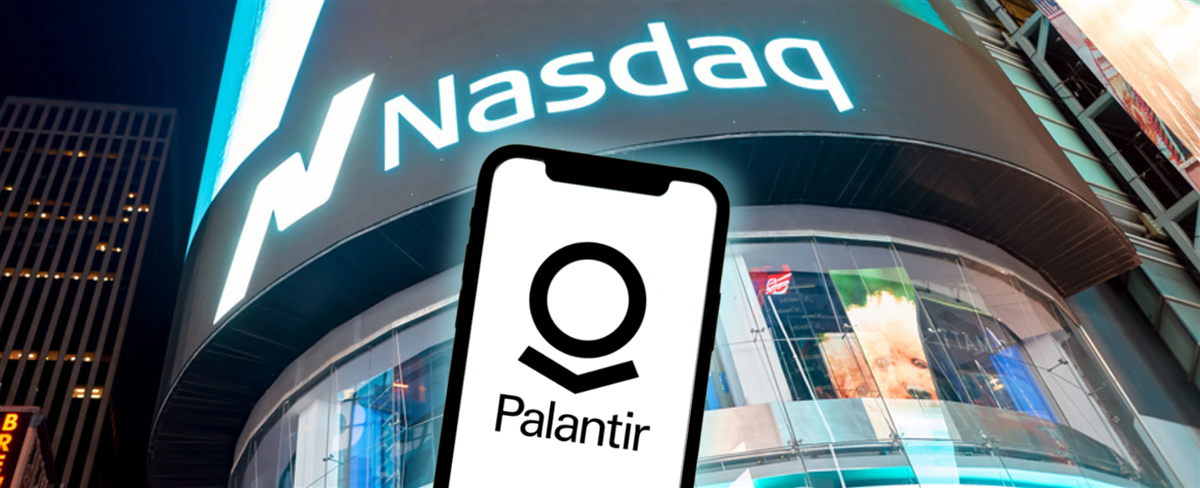
One of these verticals is the role of artificial intelligence in cybersecurity, a growing concern among many businesses and management teams as more and more information (confidential one at that) is uploaded and kept online. This theme will likely not end any time soon, especially as the global economy becomes more digitized each day. With this in mind, it shouldn’t surprise investors to see shares of Palantir Technologies Inc. (NASDAQ: PLTR) dominate 2024.
Some out there who follow the bible of value investing to the letter will say that Palantir stock’s valuation multiples today make it a costly stock. Others, more in tune with the short-term nature of the stock market, will say that the so-called “popularity contest” is being won by Palantir and its value proposition to customers and that this theme makes it expensive. The truth is that the stock is likely to keep going higher now that it has been added to the Nasdaq-100 index.
What an Addition to the Nasdaq-100 Index Means for Palantir Stock
The short answer is additional bullish price action, and the long answer is the explanation behind said price action. When a stock is added to an index, such as the NASDAQ or the New York Stock Exchange (NYSE), the different investment funds need to allocate a certain percentage of their investable assets to this stock.
This is exactly why some expect Palantir stock to keep making new highs. In reality, the Nasdaq-100 addition will be a virtuous cycle that will feed on itself. How so? When certain investment funds are obligated to add millions, if not billions, worth of Palantir stock, other investors will notice the institutional capital inflow.
When the word and sentiment spreads, that is when the financial news outlets will relay the message to Main Street, where social media will do what it’s best at, and that is propagating hot and juicy information. This positive effect could make Palantir stock’s valuation of a 50.9x price-to-book (P/B) ratio seem cheap today compared to the next 12 months.
Some called shares of NVIDIA Co. (NASDAQ: NVDA) expensive in 2023, when the stock traded at roughly 40.0x P/B, and decided to wait for a more favorable price if the stock ever pulled back. Even worse, some even went as far as shorting the stock altogether. Well, the outcome wasn’t pretty for either of these parties.
NVIDIA went on to six-fold its 2023 prices and is now trading at a P/B multiple of 52.0x in what seems to be a comfortable valuation for most of the market. The lesson here is that investors should not be afraid to pay a premium for companies that justify and earn them.
What Wall Street Sees for Palantir Stock Coming Up
Investors should not be afraid to see a consensus price target of only $41 a share for Palantir stock today, which calls for a halving from where the stock trades right now. Analysts have to be very careful when rating and valuing companies, as their reputations—and careers—are on the line when they do so.
However, occasionally, some are willing to take the risk in exchange for the reward of being right, such as analysts from the UBS Group. These analysts initiated coverage on Palantir stock as of December 2024 and decided to start right out the gate with a company valuation of $80 per share.
This target would mean today’s valuation is deemed a fair price for Palantir stock, but here’s what could actually happen. As institutional capital flows into Palantir stock and Wall Street analysts take note of the UBS Group initiative, growing analyst confidence could soon drive upward revisions to price targets.
More than that, there is a 96.4% boost in Palantir stock holdings from State Street as of November 2024. This institutional investor got ahead of the Nasdaq-100 addition curve and ended the year with a net $3.1 billion position for 3.7% ownership in the company.
All of these factors make a Strong Buy case for most investors, as both momentum, fundamentals, and sentiment place Palantir stock on a strong path to dominate 2025 as it did in 2024.
The article "Palantir's Stock Dominance Set to Continue as It Joins Nasdaq-100" first appeared on MarketBeat.







